Cultivating connections, empowering farmers
workplace excellence and employee enrichment



Soil samples collected
Soil pH testing to measure hydrogen or hydroxyl ion activity in the soil solution indicating soil acidity, neutrality, or alkalinity. This test controls nutrient availability, microbial activity, and soil physical condition.
Electrical conductivity (EC) testing assesses soil solution salt content using a Conductivity Meter. This test identifies if soil salt ions restrict crop growth as extreme soil EC levels can impede crop growth.
Testing Phosphorus via Colorimeter to determine available phosphorus in soil. A Colorimeter is also used with a spectrophotometer for determining large amounts of sample present.
Testing of soil organic carbon which is a measurable component of soil organic matter. Elevated organic carbon levels are crucial for soil health, fertility, and erosion control in agriculture. They enhance nitrogen retention, microbial diversity, and nutrient transfer to plants, boosting growth and yields.
Test for Soil available potassium (K) as plants can amass it in large quantities without toxicity. Potassium boosts root growth, drought resistance and aids water and nutrient transportation while a deficiency leads to slow growth and plant lodging.
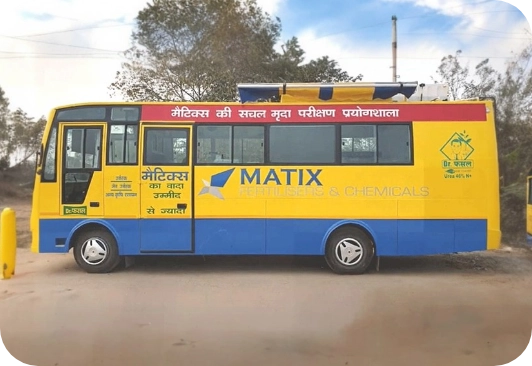
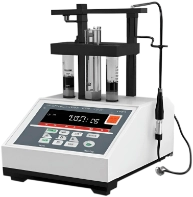
It measures the level of hydrogen or hydroxyl ion activity in the soil solution, and indicates whether the soil is acidic, neutral, or alkaline in reaction.
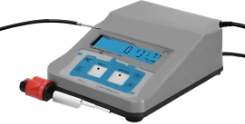
It measures the electrical conductivity (EC) of the soil solution. Soil EC that is too high or too low hinders the growth of crops.
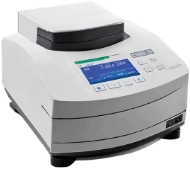
It measures the available phosphorus in soil.

It measures soil samples and small quantity of chemicals that weigh less than 200 g for laboratory analysis.
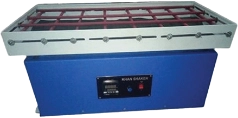
It is used to shake soil sample solutions (soil + chemical solutions) to determine available nutrients such as phosphorus and potassium.

It measures the level of potassium in the soil. Potassium increases root growth and improves drought tolerance.
The MSTV is also equipped with full power backup, including a mobile generator power and internet connectivity, a laptop and printers for providing hard copies of soil reports.